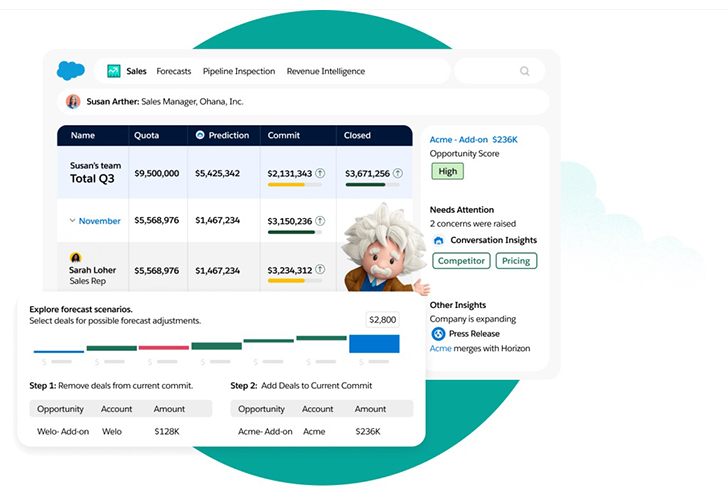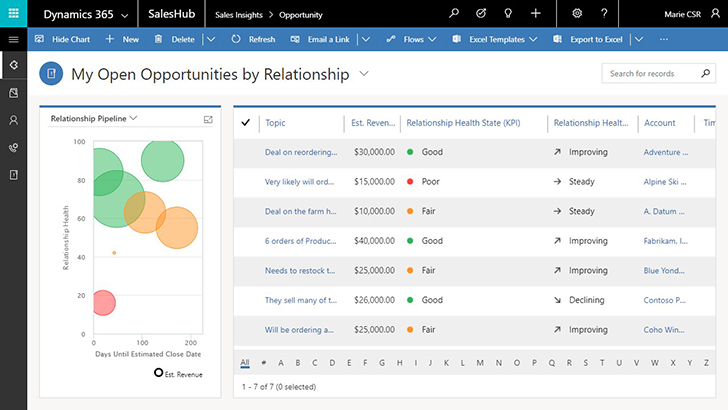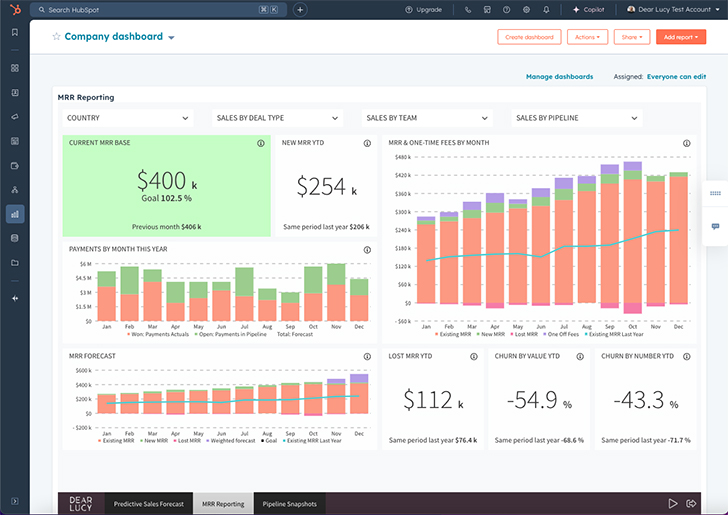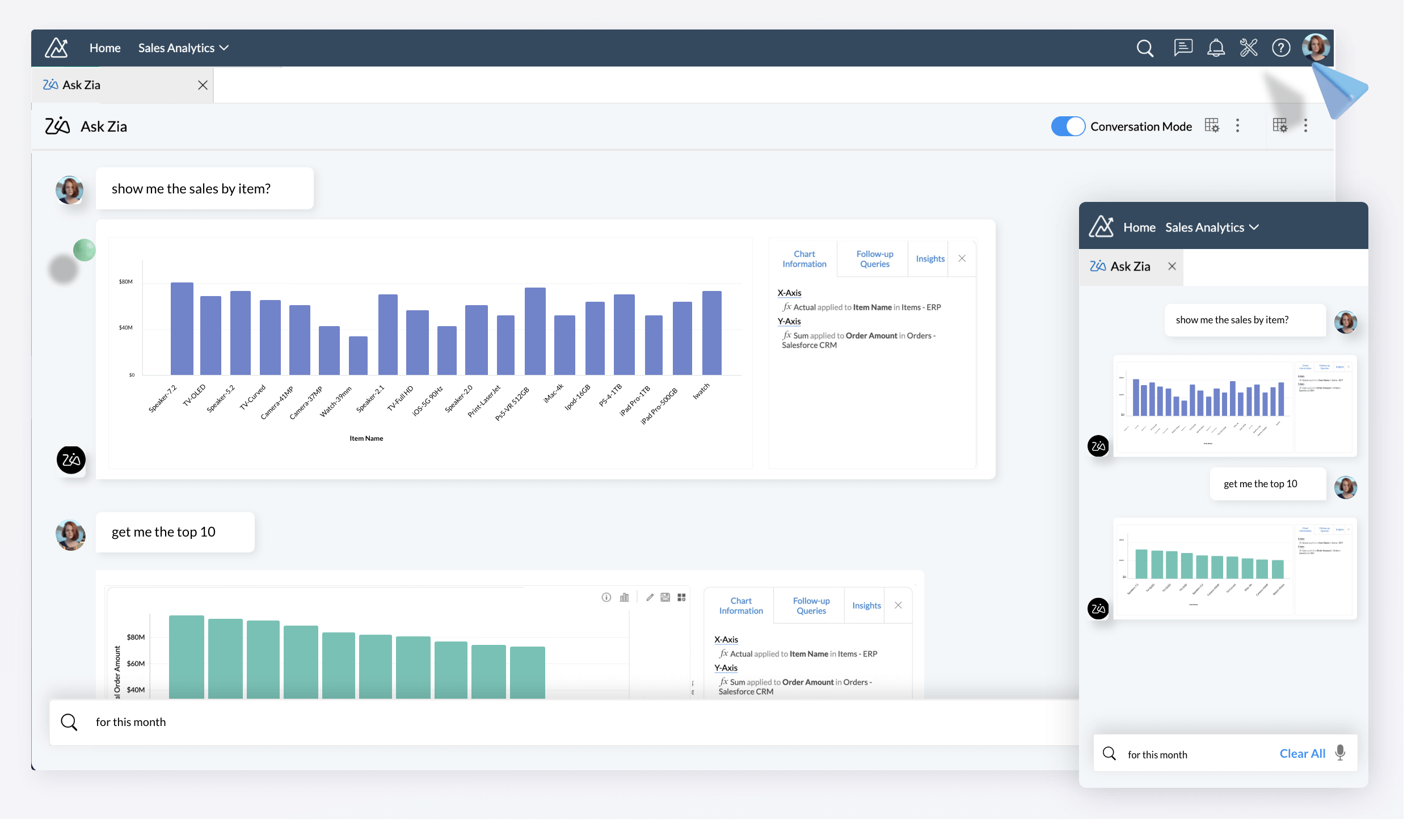Today, companies are constantly looking for ways to improve customer interactions and enhance their overall experience. One of the most effective ways to accomplish this is using AI and data analytics. These technologies are transforming CRM support by providing critical observations of customer behavior and preferences.
With AI, businesses automate responses, analyze data quickly, and personalize communication. Analytics, on the other hand, allows companies to understand trends and patterns hidden in data. This enables companies to make informed decisions. Together, they help companies enhance customer engagement and optimize internal processes. This leads to increased efficiency and drives business growth. This detailed piece will walk you through the benefits these technologies bring to businesses and customers alike. It also explores the challenges and their solutions for using AI and analytics in CRM support.

3 Ways AI and Data Analytics Are Reshaping CRM Support
Listed below are the ways through which AI and data analytics help companies transform CRM support.
1. AI-Powered Customer Support
AI in CRM improves customer support by providing quick answers to customer queries. With AI chatbots, customers may get help anytime without waiting for human representatives. These chatbots answer common questions or guide customers through simple tasks. When issues are more complex, AI utilizes natural language processing (NLP) techniques to respond to customer queries quickly. This leads to faster solutions and satisfied customers. Additionally, by analyzing customer sentiments, businesses may tailor their responses, which helps them foster stronger customer relationships.
2. Data-Informed Decisions
AI and analytics in CRM help businesses predict trends based on past data. By looking at past customer behavior, companies are able to envision which products are likely to sell more. This helps them plan their inventory and marketing strategies effectively. For instance, if data shows that some products sell better during specific seasons, businesses can prepare their stock ahead of time. Sales forecasting is another use case. It helps sales teams focus on leads that are more likely to convert. This allows them to channelize their efforts where they will have the most impact.
How Salesforce Einstein Analytics Powers Smarter Business Decisions
3. Improved Customer Experience
AI and analytics in CRM help companies enhance customer experience by offering omnichannel support. By analyzing customer data, they can personalize communication and offers based on individual customer preferences and behaviors. This makes customers feel special and valued. Furthermore, AI helps companies anticipate customer issues before they arise and offer timely solutions. This helps prevent problems before they occur.
Key AI and Data Analytics Capabilities Within Different CRMs
Let’s explore the key AI and analytics capabilities of different CRMs, helping businesses drive growth and enhance customer satisfaction.

1) Salesforce
Salesforce offers strong AI features through its Einstein platform. It helps businesses understand customer behavior and predict sales revenue using Einstein Analytics. With Salesforce managed services, organizations can maximize the potential of key features like advanced analytics for sales and marketing, AI chatbots for customer support, and AI recommendations for sales teams. These Salesforce managed services ensure seamless setup, integration, and ongoing optimization of automated tools, allowing users to create custom dashboards and reports for visualizing data and tracking sales performance. This helps companies make informed decisions quickly without spending hours on manual data analysis. Additionally, Salesforce connects with other data sources to improve customer profiles and make CRM more effective.
The Great IT Debate: Salesforce Managed Services vs. In-House Heroes
2) Dynamics 365
D365 uses AI to help companies manage customer relationships better. It evaluates historical data to forecast future trends and customer behaviors. For example, sales teams may use AI analytics to identify leads, which are most likely to convert. Its key features include AI Builder to build custom AI models, Virtual Agent for customer service, and advanced analytics to uncover insights from customer data. Dynamics 365 also has automated workflows that make processes easier, allowing teams to focus on important tasks. Users will be able to see real-time data with built-in dashboards, which helps track performance. It works well with Microsoft Power BI to create detailed reports and share insights across the company.
Maximize Your Business Growth with Microsoft Dynamics 365
3) HubSpot
HubSpot provides AI tools that enhance marketing, sales, and service functions within its CRM. Its features include conversational intelligence, lead prediction, and marketing analytics. HubSpot also offers automated email marketing campaigns that adapt to user behavior increasing engagement rates. For example, if a lead frequently opens emails and visits the website, they may receive a higher score. Sales teams can then channel their efforts on these high-scoring leads, increasing their chances of closing deals. Its analytics tools let users track website performance, monitor social media interactions, and analyze customer feedback. This information helps businesses improve their strategies and customer experiences.
4) Zoho CRM
Zoho comes with a powerful AI assistant called Zia that helps users manage customer relationships better. It analyzes data to predict the likelihood of success for leads. For example, if a sales team is working on multiple leads, Zia evaluates past interactions and behaviors to determine which leads are most likely to convert. Zia also automates routine tasks, saving time for sales teams. Zoho’s analytics tools allow users to create reports and dashboards that show important performance indicators. This helps businesses make quick decisions based on data. Zoho connects with different third-party apps, providing a holistic view of customer interactions across platforms.
Summing Up
The impact of AI and analytics on CRM support is wide and far-reaching. These technologies help companies know their customers better. This allows for more personalized interactions. As companies continue to adopt these tools, they enhance customer engagement and satisfaction. This helps build stronger relationships with customers and drives growth for the company. If you are planning to invest in these technologies to create a better support system, you may reach out to an IT consulting partner that’s reliable and has proven experience.









